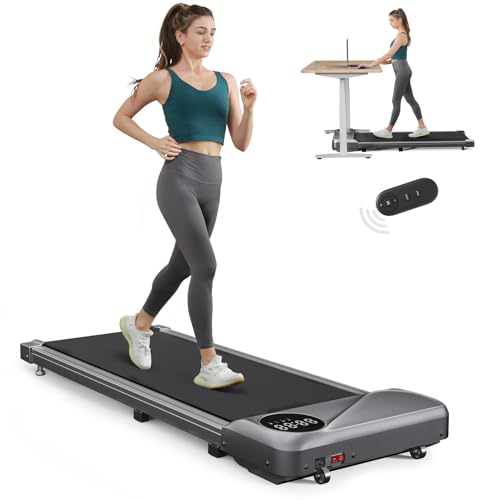What Are The Myths And Facts Behind Walking Machine
The Walking Machine: A Comprehensive Guide to Your Fitness Companion
In today's hectic world, where time is a high-end, keeping a constant exercise routine can be a difficulty. For lots of, a walking machine— frequently referred to as a treadmill— works as an ideal physical fitness companion. This post provides an extensive take a look at walking machines, including their advantages, types, maintenance tips, and frequently asked questions.
Why Choose a Walking Machine?
Walking machines provide a practical and efficient way to integrate cardiovascular workout into every day life. Here are numerous crucial advantages:
- Convenience: Walking machines allow people to work out anytime, despite weather conditions or time restrictions. They are best for busy schedules.
- Flexibility: Users can stroll, jog, or perform at their own pace and intensity.
- Safety: Walking machines present a lower threat of injury compared to outdoor walking or running, particularly for beginners or those recuperating from injuries.
- Tracking Progress: Many treadmills featured integrated displays that track metrics like speed, range, and calories burned.
Types of Walking Machines
When thinking about a walking machine, it's important to choose the right type based upon individual fitness objectives and area restraints. Below are the primary kinds of walking machines:
Type
Description
Manual Treadmills
These machines do not have a motor, and users need to stroll or go to rotate the belt.
Electric Treadmills
Powered by an electric motor, allowing users to set the speed and slope effortlessly.
Folding Treadmills
Designed for simple storage, these treadmills can be folded up when not in use.
Desk Treadmills
Ideal for a double work and workout environment, these compact machines enable walking while working.
Incline Trainers
These permit users to replicate uphill walking, boosting workout strength and calorie burn.
Picking the Right Walking Machine
Picking the ideal walking machine can significantly affect motivation and efficiency. Here are some elements to consider:
Key Features to Look For
- Motor Power: A powerful motor guarantees a smooth and consistent exercise. For occasional walkers, a 1.5 HP motor is normally adequate; for much heavier use, search for 3.0 HP and above.
- Belt Size: A wider and longer belt provides more space for a comfortable stride. Standard sizes range from 16 inches wide and 50 inches long.
- Slope Options: Adjustable slope settings can imitate walking or running uphill, increasing the strength of the exercise.
- Shock Absorption: Good shock absorption minimizes the threat of joint injuries and improves convenience.
- Console Features: Look for integrated exercises, heart rate displays, and connectivity features like Bluetooth for a more interesting experience.
Budget plan Considerations
Walking machines come in a large range of rates, depending upon functions and construction quality. Here's a rough budget breakdown:
Price Range
Functions
Under ₤ 300
Standard handbook or small electric treadmills with minimal features.
₤ 300 – ₤ 700
Advanced electric treadmills with incline, medium power motors, and much better warranties.
₤ 700 – ₤ 1500
Premium electric treadmills with larger built-in screens, comprehensive features, and warranties.
₤ 1500 and above
High-end designs using advanced innovation, functions, and long lasting construction for major physical fitness lovers.
Maintenance Tips for Your Walking Machine
To guarantee durability and optimum performance of a walking machine, consider the following maintenance suggestions:
- Regular Cleaning: Dust and sweat can collect on the machine and the belt. Wipe down the surfaces and tidy the belt frequently.
- Lubrication: Depending on the model, lubricating the running belt regularly can avoid wear and tear. Inspect the producer standards for advised lubrication schedules.
- Assessment: Periodically check the machine for loose screws or used parts. Tighten up and change as required.
- Calibration: Occasionally, examine the calibration of your machine's metrics to guarantee they supply precise information.
- Correct Use: Follow the maker's suggestions for weight limitations and functional guidelines.
FAQs About Walking Machines
1. Are walking machines a good workout?
Yes, walking machines offer an exceptional cardiovascular workout, can aid with weight-loss, and enhance general health.
2. How typically should I use a walking machine?
Goal for a minimum of 150 minutes of moderate-intensity aerobic activity each week, which can quickly be accomplished with routine sessions on a walking machine.
3. Can I drop weight on a walking machine?
Yes, integrating a walking machine routine into a healthy diet can promote weight loss, particularly if combined with intervals and incline training.
4. Is it safe for senior citizens to utilize a walking machine?
Yes, walking machines can be safe for elders with low-impact settings and security functions like hand rails. Nevertheless, people ought to talk to their health care supplier before starting any exercise program.
5. What's the distinction between a treadmill and a walking machine?
The term “walking machine” typically describes a treadmill planned for walking, while “treadmill” can describe machines used for various intensities, including running.
With their versatility and benefit, walking machines can considerably improve one's physical fitness journey. By carefully selecting the right type, ensuring correct upkeep, and including various workout strategies, users can optimize their walking machine's benefits. Deshawn Giombetti to any workout routine, consistency is key to attaining enduring physical fitness outcomes.
